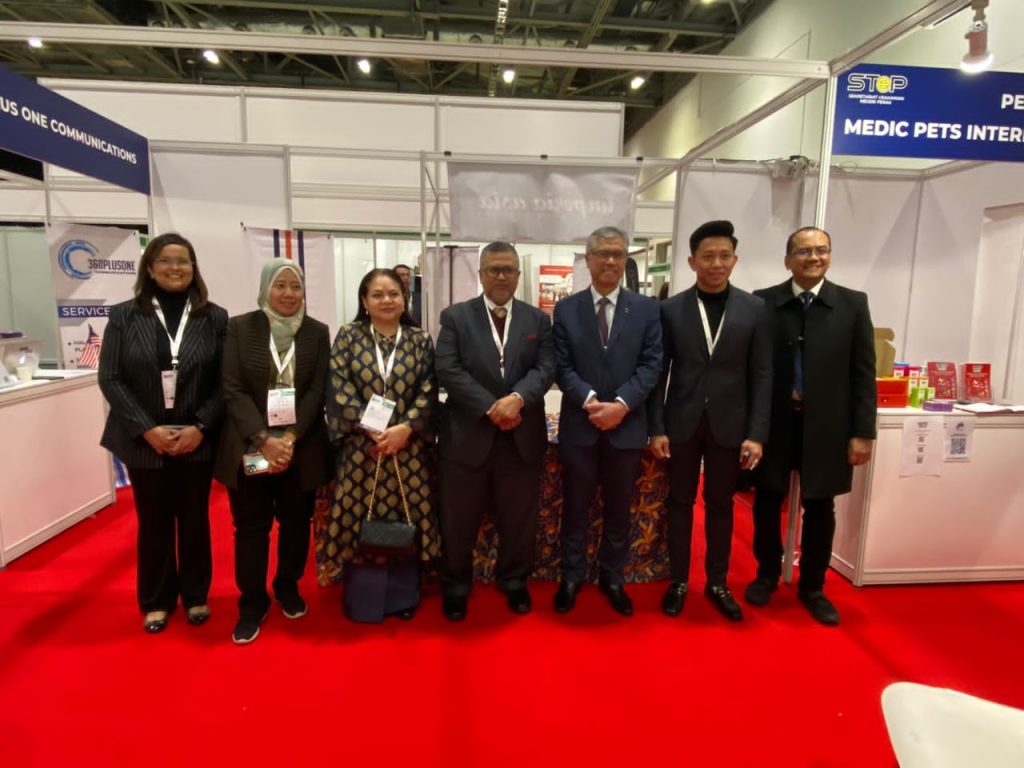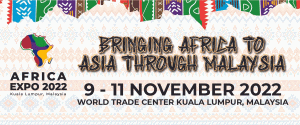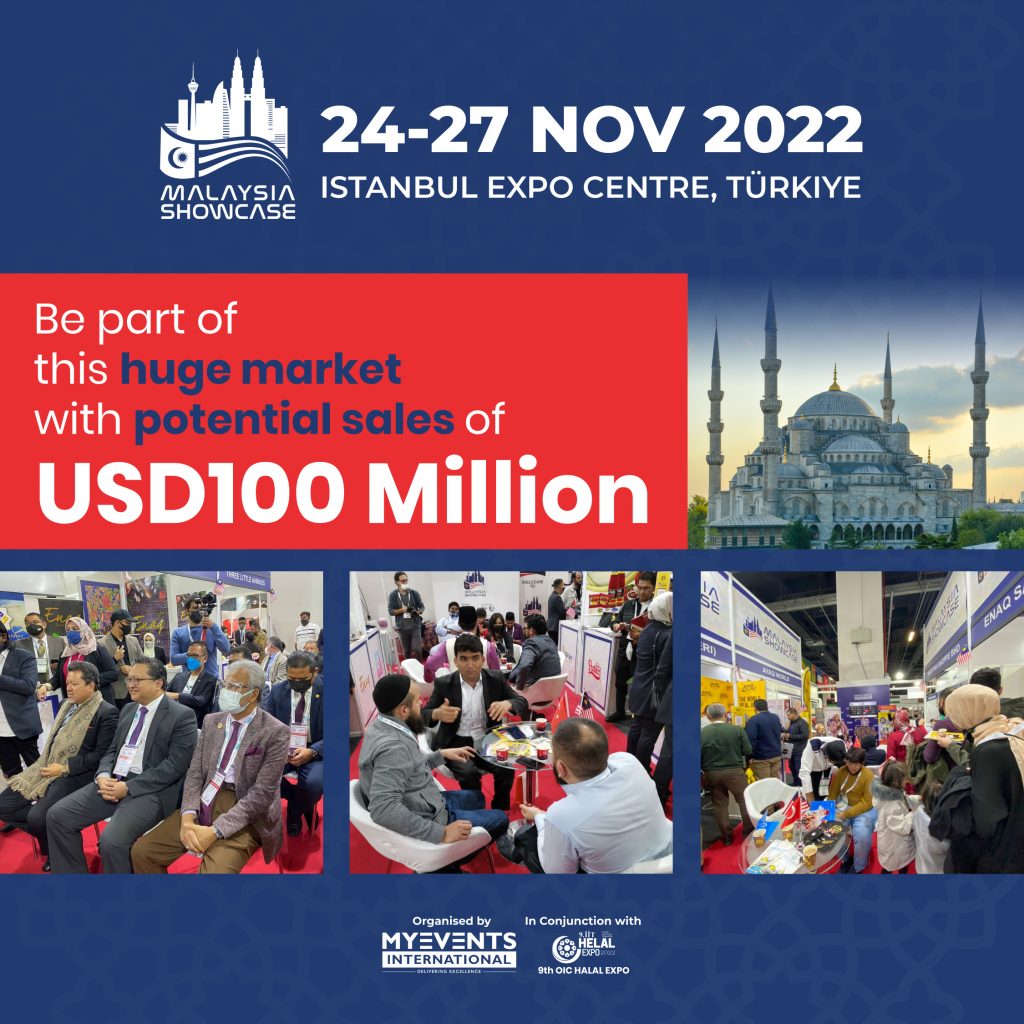CK Tan – Nikkei Asian Review
KUALA LUMPUR — Taufik Mellouki calls out to visitors passing his booth in the Kuala Lumpur Convention Center. “Care for a glass of nonalcoholic wine from Provence, France?” To be precise, Mellouki is offering not wine but sparkling juices. But they do come from the vineyards of southern France. And they are certified halal, which means they are prepared in a manner sanctioned by Muslim scholars.

Mellouki’s Belgium-based business, Mirage Gold, is one of 521 companies participating in the Malaysia International Halal Showcase, an annual government-backed trade exhibition for halal products. Malaysia, a pioneer in organized halal certification, has become a gateway to a consumer market of some 2 billion Muslims worldwide.
The halal market is not limited to food and beverages. Cosmetics companies are also on hand at the showcase — Taiyen Biotech of Taiwan being one of them. Although Taiwan is home to only a small number of Muslims, the skin care and cosmetics company three years ago decided to get more than 100 of its products certified as halal. The company, which markets the Lumiel brand, has high hopes for expansion in Southeast Asia and the Middle East.
The numbers for the showcase reflect the growth of the halal business. The four-day expo, which runs through Saturday, is expected to generate 500 million ringgit ($155 million) in sales, up 22% from last year.
Well-positioned
While companies outside the Muslim world are increasingly keen to meet global halal demand, homegrown businesses in Malaysia are also tapping into it.
Malaysia’s government introduced halal-compliance standards and certification in the late 1970s, mainly for the food industry. The country, where Muslims account for more than 60% of the population of 30 million, last year exported $10 billion worth of halal products. Forty percent of those products came from the food and beverage sector.
Munchy Food Industries, the largest biscuit maker in Malaysia, is a regular at the trade fair because it wants to promote itself abroad. The company was founded in 1991 in a village in the southern state of Johor. With limited equipment, the founder made cookies and peddled them in nearby towns. Today, the ethnic Chinese-owned company sells 7 million to 8 million ringgit worth of cookies per month in more than 60 countries. All its products get the halal stamp from Jakim, the Malaysian government agency in charge of certifications.
Overseas sales currently account for 30% of Munchy’s total. Asked how much the company intends to raise that ratio, LK Tan, vice chairman and son of the founder, said “we will grow our revenue to a proportion of 40-to-60 in two years’ time.”
To expand in nearby emerging markets, such as Indonesia, Munchy plans to reduce package sizes in order to bring down prices. “Our premium products are selling well in Middle East countries and Japan, but to grow in developing countries, we need to re-strategize,” Tan told the Nikkei Asian Review.
Exports are not the only benefit of Malaysia’s image as halal central. The ready availability of such products in the country makes it a prime tourist destination for Muslims from other parts of the world. Last year, Malaysia topped a ranking of holiday spots among Muslims, according to a survey released in February by Singapore-based travel company Cresentrating.
Tourists from Muslim-majority nations made up about 17% of Malaysia’s total of 26 million arrivals in 2013, up 7% from a year ago.
“It’s very important to have halal food,” said Amos Alfris, a 29-year-old tourist from Oman visiting Kuala Lumpur with his wife. “If not, we can’t come.”
Standard issues
Malaysia’s halal certificates are recognized worldwide. Jakim is advised by religious scholars appointed by the government. The agency’s officials go through rigorous training before they are allowed to audit food processing procedures.
 Muslim visitors to the trade show sip green tea from Japan’s Harada Seicha.
Muslim visitors to the trade show sip green tea from Japan’s Harada Seicha.
Not all certificates are created equal, though. In some countries with Muslim minorities, religious associations handle halal-related matters. The credentials they issue carry less weight among the faith’s closest adherents. Many say it is time for a true universally accepted standard.
Malaysia is trying to address this issue within the Organization of Islamic Cooperation, a multinational association.
“Malaysia is partnering with Turkey to tackle the differences in halal certification and to come up with new standardized criteria that will be applied in all OCI countries,” Jamil Bidin, CEO of Halal Industry Development, said at a press briefing.
As consumer incomes rise and markets become ever more connected, a global halal standard could help businesses make the most of demand growth.



